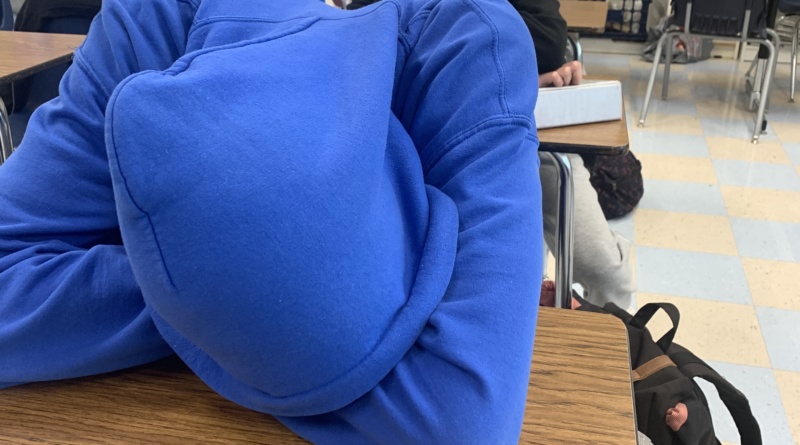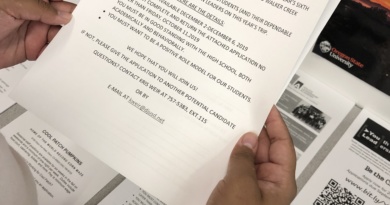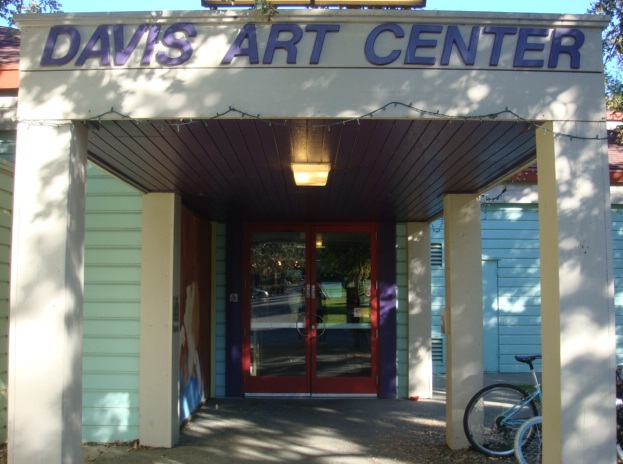Serious consequences arise when teenagers are sleep deprived
PHOTO: Sophomores Eitan Rosenheim and Hannah Daum use class time to catch up on sleep.
By Shira Kalish,
BlueDeviHUB.com Staff–
After seven exhausting classes, sophomore Juliet Gee spends hours every afternoon at dance before doing her homework late into the night. Her packed schedule leaves very little time for sleep.
According to a National Sleep Foundation poll, 87 percent of U.S high school students get much less than the recommended eight to 10 hours of sleep per night. This produces many negative effects including anxiety, depression, lack of concentration and poor grades.
Sophomore Shaan Sylvain, busy throughout the day with soccer, homework and family commitments, gets just six hours of sleep every night. Often, she stays up late finishing all her homework, especially for rigorous classes like anatomy.
“When I go to school without enough sleep, it makes me short-tempered. That isn’t who I want to be,” Sylvain said.
Social media is a factor in keeping teenagers up at night. Sophomore Lele Santellices often finds herself scrolling through Instagram and Snapchat late into the night, and only getting around six hours of sleep.
“It makes it really hard to wake up in the morning,” Santellices said.
She often shows up to school late when she wakes up bleary and sluggish, impacting her attendance and grades.
Many teenagers, overwhelmed by the amount of work they are expected to complete, procrastinate throughout the day and do not start on their homework until late at night.
Sophomore Amaralinda Sedeño, getting by on just five to six hours of sleep per night due to homework and her packed sports schedule, finds it hard to stay awake during her last few classes.
“I get very irritable very quickly,” Sedeño said.
Ian Campbell, a researcher of adolescent sleep at UC Davis, conducts studies to find out how sleep needs vary with age.
From a previous study, he proves that on average, kids get around eight and a half to nine hours of sleep per night at nine years old, and this number decreases by about 10 minutes per year across adolescents. Campbell’s current study is trying to find out the most accurate and up to date amount of sleep that adolescents need to stay healthy.
In Davis, many kids find themselves exhausted throughout the day on six or less hours of snooze time. A lack of sleep, especially for teenagers, has outcomes ranging from inconvenient to fatal.
“The most serious consequences are adolescents who are driving and falling asleep behind the wheel because they didn’t get enough sleep the night before,” Campbell said.
Other consequences are visible in Davis High classrooms every morning. Any first period class is thick with kids drowsily flipping through worksheets or zoning out during lectures, unable to focus on the teacher due to exhaustion. Many kids sleep during those first few periods of the day, laying their heads down on their desks and using class time to catch up on sleep they didn’t get the night before.
“When you are falling asleep in class, then you are clearly not learning and not taking advantage of the educational opportunities available to you,” Campbell said.





